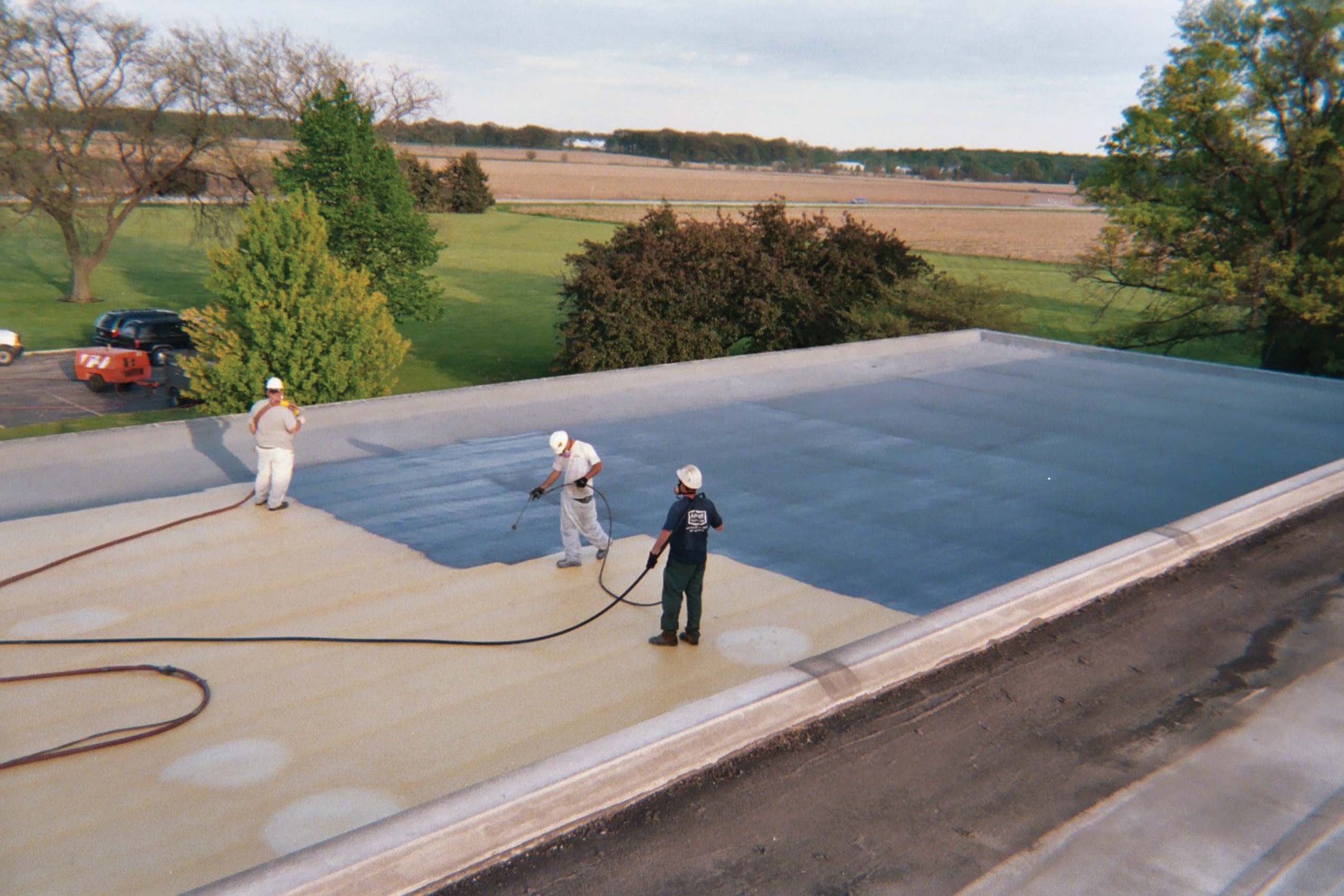SPF: Industry Update

The Old Guard
We first spoke to Tom Harris, product manager of BASF's Spray Foam Group, to get his assessment of the SPF market in general. He attributes double-digit market growth over the past five years to new applications for SPF technology. "Roofing adhesives and custom-formulated residential materials and air barrier systems are primarily responsible for the growth. We see these applications growing rapidly over the next several years," he explains. "And there is no reason that industry size can't double from its current levels within five years."Harris says that the biggest challenges facing the industry today are the transition to the new zero-ozone-depleting blowing agents and the sustained development of new applications.
As for BASF in particular, the company has consolidated its market-share by recently acquiring Foam Enterprises and its extensive spray foam product line. "Foam Enterprises' Comfort Foam Brand is well established in the residential market and completes the BASF product line which includes WALLTITE® air barrier systems, ELASTOSPRAY® and ELASTOCOAT® roofing materials and ZERODRAFT® caulks and sealants," says Harris.
When asked what makes BASF stand out from others in the SPF market, Harris replies, "BASF is a global company, which allows us to draw on technologies from around the world. Each continent and in fact country, has developed specific needs and products to which we have direct access. This allows us to commercialize unique and leading-edge technologies faster than most." Harris adds that it is also important in the domestic market and the current economy to have back integration of both resin and isocyanate. "BASF is a global supplier of isocyantes and raw materials for the production of SPF resins," he says.
A global corporation must nevertheless market to roofing contractors. BASF puts its focus on education and information-essential to the successful contractor, according to Harris. "This is not a simple business; we are dealing with chemicals, and chemical training forms the cornerstone of the BASF offering," he says. "BASF looks to provide a growth opportunity for conventional material roofing contractors. We provide, as others do in our industry, a complete turn-key package of equipment, materials, training and marketing support."
BASF has an approved applicator program and training facilities in Houston, Hudson Falls, N.Y., and Minneapolis. Harris also refers contractors to the SPFA's Applicator certification program, the ABAA certified air barrier applicator program, and RIEI (Roofing Industry Educational Institute), which offers SPF programs. "BASF is currently developing education programs for both the design community and the applicator, which will be available online through the Web site," says Harris.
What advice would Harris give to contractors thinking of entering the SPF market? "Research and educate and establish a specific team for SPF," he says. "Train them well. Take pride in your work."
The New Kid on the Block
The Dow Chemical Co., Marietta, Ga., isn't exactly wet behind the ears, but the company is exploring a new territory. Earlier this year, Dow Chemical introduced its new spray polyurethane foam commercial roofing systems. Using proprietary technology, the company has developed an SPF blend that incorporates Honeywell's environmentally friendly Enovate 3000 blowing agent.According to Mike McCurrie, market manager for Dow Chemical, the company's capability to participate in the spray foam market was created with the acquisition of Flexible Products Co. in February 2000. "Since then, Dow technology has been applied to develop a unique, high performance SPF solution to manage energy and moisture in the building envelope," says McCurrie. "This is in alignment with Dow's strategy to apply science in providing solutions for our customers."
Dow Chemical's SPF formulation can be applied directly over an approved substrate, followed by either a silicone or acrylic coating to provide UV protection. Dow offers the building owner an optional 15-year systems warranty. "Not only does SPF improve the performance of the building, but it also increases productivity and gives contractors a choice to solve their customers' roofing problems," says McCurrie.
To get the word out on its presence in the market, Dow has attended several roofing- and construction-related trade shows to introduce contractors to the new SPF system. The company offers a five-day training program that goes through the basics of product application and technical field support.
Looking for a reprint of this article?
From high-res PDFs to custom plaques, order your copy today!


